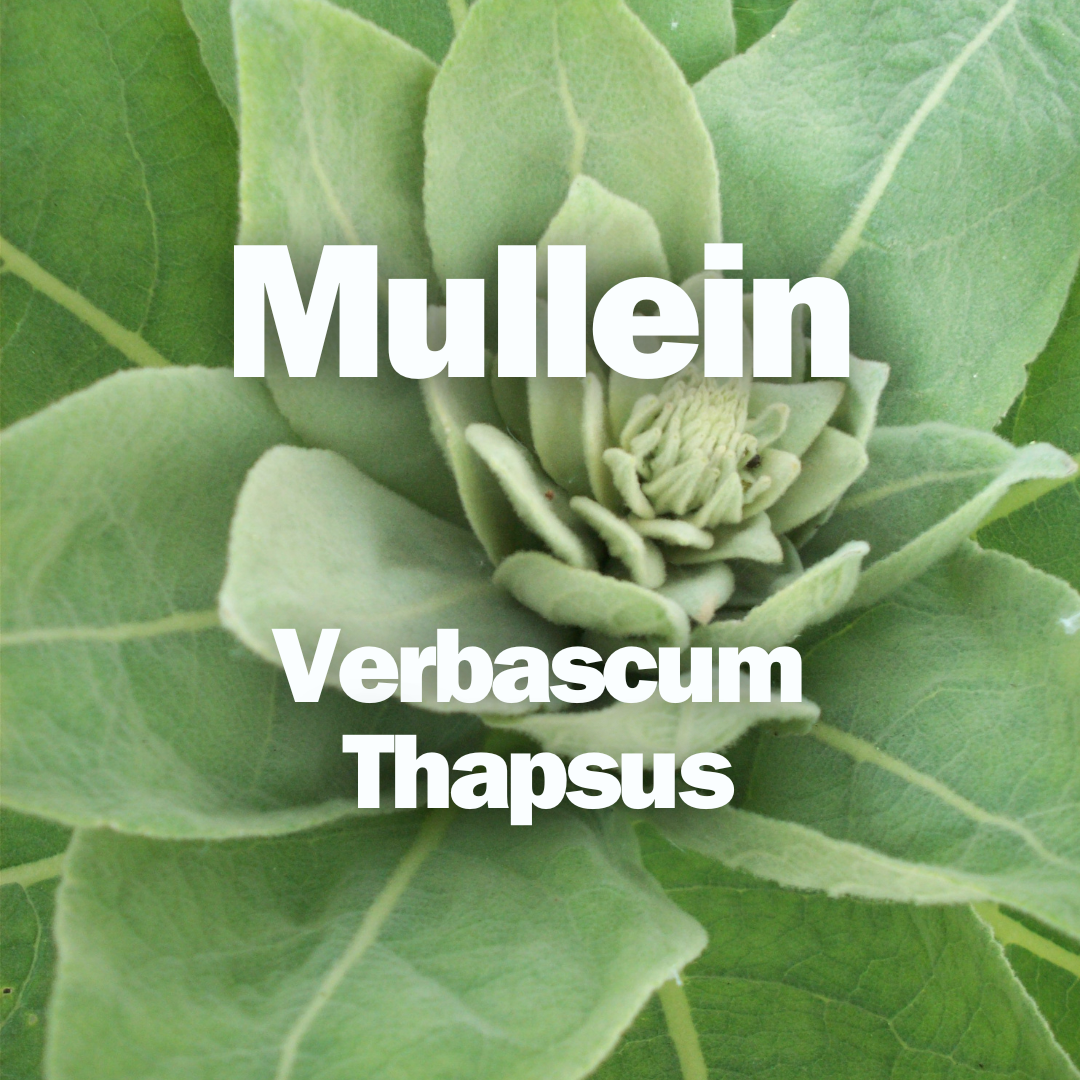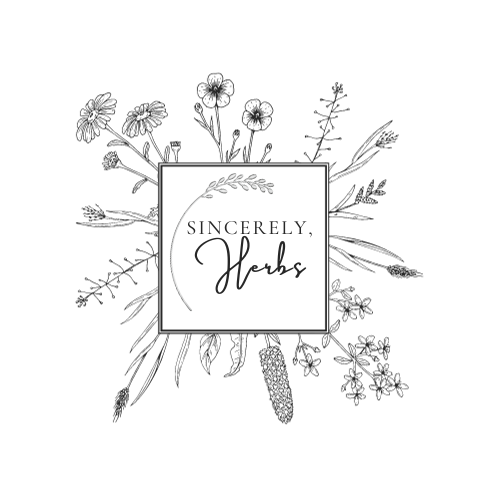
Discovering Mullein Leaf: A Treasure in Herbal Healing
Nestled within the rich tapestry of herbal lore and modern botanical wellness, Mullein Leaf (Verbascum Thapsus) stands out as a beacon of healing and harmony. This versatile herb has soft, velvety leaves and it holds a special place in the hearts of herbalists. Let's delve into the enchanting world of Mullein Leaf, exploring its appearance, uses, actions, energies, and its esteemed place in herbal tea blends.
The Majestic Appearance of Mullein
Verbascum Thapsus, commonly known as Mullein, is a plant thrives in a variety of environments, notably in well-drained soils under the full embrace of the sun. The first year of growth unfurls a rosette of soft, furry leaves, which feel almost like felt to the touch. As the plant matures into its second year, it shoots up a towering stem, which can reach heights of up to 8 feet, crowned with dense spikes of yellow flowers that bloom from the bottom up.
The leaves are the most distinctive feature of the Mullein plant. They are large, up to a foot long, and have a silvery-green hue. The texture is notably soft, attributed to the fine hairs that cover them. This unique feature not only defines the plant's appearance but also hints at its traditional uses for soothing and protection.
Uses and Actions
Mullein Leaf has been revered across cultures for its medicinal properties. Historically, it was used for its soothing, emollient properties on the respiratory system, making it a go-to remedy for coughs, colds, and bronchitis. The leaves, flowers, and even the root have found their way into various preparations, each part offering its unique benefits.
The plant has several actions that include:
- Antispasmodic: helps to suppress muscle spasms
- Expectorant: Helps in expelling mucus from the airways.
- Demulcent: Soothes irritated or inflamed tissue.
- Anti-inflammatory: Reduces inflammation, providing relief in conditions such as ear infections.
- Antibacterial: Offers resistance against bacterial infections, particularly in the respiratory tract.
Energies and Why It's Great in Herbal Tea Blends
Mullein Leaf carries a gentle, grounding energy, making it a comforting presence in any herbal remedy. It aligns with the element of fire, reflecting its ability to bring light and warmth to cold, damp conditions often associated with respiratory ailments.
In herbal tea blends, Mullein Leaf is a superstar for several reasons:
- Soothing Quality: Its demulcent properties make it incredibly soothing for the throat and lungs, providing a protective layer that's especially beneficial in teas for coughs and sore throats.
- Blending Harmony: Mullein has a mild, slightly earthy flavor that blends well with a variety of herbs, enhancing their properties without overpowering the blend.
- Respiratory Support: Its expectorant and anti-inflammatory actions make it a key ingredient in respiratory support teas, helping to clear congestion and calm irritation.
- Versatility: Beyond respiratory health, Mullein's antibacterial and anti-inflammatory qualities contribute to its effectiveness in teas aimed at general wellness, ear health, and even digestive support.
All of that to say, Mullein Leaf is more than just an herb; it's a testament to the power of nature's pharmacy. Its majestic appearance, with towering spikes and soft, velvety leaves, is matched by its profound healing properties. From soothing sore throats to easing respiratory distress, Mullein makes a valuable addition to any herbal collection, particularly in tea blends where its gentle nature and supportive actions shine. As we blend, sip, and savor our way to wellness, let's remember the simple, yet profound gifts that plants like Mullein offer us on our journey to health and harmony.
